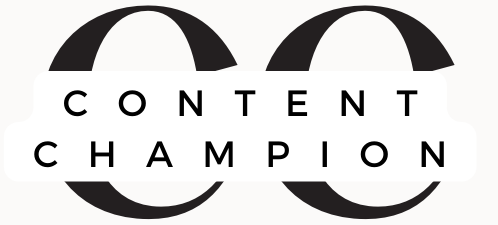It can be hard to pay attention to the rapidly evolving world of internet threats & ways to protect yourself.
Ever since dial up internet users have had to keep up with anti-virus software, scans, and firewalls. Countless hours spent on McAfee or Norton only lead to more data than we know what to do with! As a small business owner, people continue to try and sell you on the latest and greatest defense for the internet connected landscape. So how you know what is worth its salt and which is a monthly money pit?
In today’s expansive digital environment, there are a few reasons its good to identify whether you need to get certified in cyber security in the first place. Having a good policy can help your internet presence, customers, and business prospects.
- Many aspects of cybersecurity best practices are actually habits or methods of operation rather than things that need to be purchased. These ‘habits’ or simplified operating procedures actually help you operate business in a more secure way that keeps your environment secure.
- Depending on the level of security you are looking for, it is possible that many web based applications and systems that are already in use throughout your business are already providing significant levels of safety. This is where an audit of your policies and procedures can be helpful in knowing where your business already has strengths without cybersecurity certifications.
- Using artificial intelligence amongst multiple team members may pose some risks to your information or data.
- Working with the government and other larger entities often require standards of security both in operation & in threat detection. Having a standard policy for this area will soon be a market entry requirement and getting ahead of the competition means knowing how your website and technology are secure.

Prevention is always better than cure for medicine and cybersecurity. It’s not only big players being targeted these days. As a primarily front-facing technical content and development agency it has been a slow and deliberate transformation at Content Champion to begin including cybersecurity into the day to day. The good news is that it doesn’t have to be hard work, and you don’t have to be a programming genius to make strides in cybersecurity.
Depending on what your goals are, cybersecurity certification also may not be necessary. While we do have several awesome paid cyber security training experts to recommend, for smaller businesses or DIY weekend warriors, getting a good understanding of how to audit where you stand and developing plan can be done with a bit of elbow grease & applying yourself. With a solid audit you may realize that you don’t actually need to get certified in cyber security. Leave Geeksquad for the next guy, you got this!
In fact, many cyber risks can be minimized not with expensive tools, but through consistent, commonsense behavior. Practices like regularly updating software, using strong password policies, enabling two-factor authentication, and educating staff on phishing attacks are often more valuable than purchasing advanced software. Cybersecurity, at its core, is a mindset—a culture—rather than a product.
Many small businesses also underestimate the protection already built into their existing platforms. Tools like Google Workspace, Microsoft 365, and Shopify often include security features such as encrypted storage, built-in spam filters, and robust authentication options. Taking the time to audit which tools you’re using—and what security features they already include—can save money and reveal surprising levels of protection. A cybersecurity audit doesn’t require an expert—it simply requires a systematic checklist and honest review of your digital environment. Check out Content Champion services that can help get these policies in place at your organization.
Of course, emerging technologies like artificial intelligence pose new challenges. AI tools can inadvertently leak sensitive data or introduce risks if used improperly across teams. For example, uploading customer information into AI models without data governance could breach privacy laws. Creating usage guidelines and educating staff on what data is allowed for use in these tools can go a long way in reducing risk.
If your small business aims to work with government agencies or larger enterprise clients, then formal cybersecurity certifications may become a necessity. Frameworks such as ISO 27001 or the NIST Cybersecurity Framework are increasingly being used as standard requirements for vendor selection. These certifications communicate credibility and trustworthiness, especially when handling sensitive information.
Learn more about the NIST Cybersecurity Framework for small businesses.
A simple introduction can help you decide if it fits your business model.
To train your team in spotting threats, the Anti-Phishing Working Group offers free resources and alerts.
Still, not every company needs to get certified. Many small teams can manage cybersecurity internally with the right mindset and tools. For example, assigning one person as your “security lead”—regardless of their technical background—can drive meaningful changes. That person can conduct quarterly audits, organize awareness training, and serve as a point of contact for any suspicious behavior.
Another helpful strategy is to host regular “cyber huddles”—short, monthly internal meetings to review security practices, new threats, or team questions. You might even consider publishing content about your security practices, which not only informs your audience but helps build credibility.
Preventative steps like these can also be supported through employer-funded resources. If you offer a flexible spending account (FSA) or similar benefits, cybersecurity tools and training expenses might be eligible—especially when they relate to protecting sensitive business or healthcare-related information.
Finally, it’s worth aligning your privacy policies with your cybersecurity standards. Visitors and clients are increasingly cautious about how their data is used. Updating your privacy policy to reflect encryption, cookie policies, and third-party data sharing builds transparency and trust.
Need help aligning your security audit with your broader business goals? Content Champion offers strategic support, especially if you’re aiming to scale securely.
Cybersecurity doesn’t have to be a burden—it can be a natural extension of your operations that earns trust and protects your hard work.
